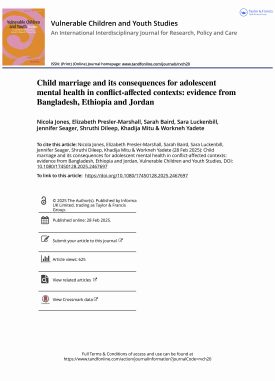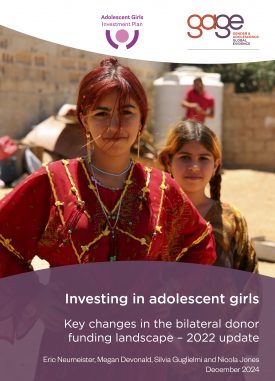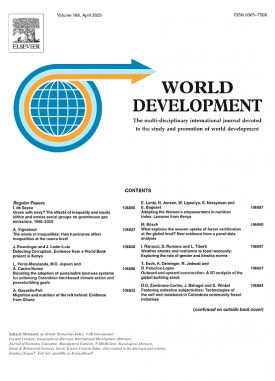There is a growing recognition that social norms play a key role in perpetuating gender- and age-based violence, and that tackling social norms must be an integral component of prevention and response interventions to ensure meaningful progress towards the ambitious targets of eliminating gender-based violence (Sustainable Development Goal [SDG] Target 5.2) and violence against children (SDG 16.2) by 2030. However, existing research often fails to adequately capture life-course and context-specific complexities. To explore these challenges, this chapter focuses on adolescents’ vulnerabilities to violence in Afar, one of the Ethiopia’s most disadvantaged regions. Drawing on findings from the Gender and Adolescence: Global Evidence (GAGE) mixed-methods 2018 baseline research, and using a socio-ecological framework, the chapter highlights that while the patterning of violence experienced by adolescent girls and boys is shifting across generations at the micro-level, gender- and age-related social norms remain deeply entrenched in both migrating and settled pastoralist communities. At the meso-level, institutional barriers to addressing adolescents’ experiences of violence include a lack of basic infrastructure, a dearth of confidential reporting spaces, limited adolescent- and gender-friendly personnel within the police and justice sectors, and poor coordination. At the macro-level, the chapter underscores the significant disconnect between Ethiopia’s progressive national policies and adolescents’ experiences of violence, reflected in the availability and quality of prevention and response services. The chapter concludes that to adequately tailor services to local realities and tackle adolescents’ specific vulnerabilities, a fine-grained analysis of the gendered and generational experiences of violence in its diverse forms is critical.
Suggested citation
Jones, N., Gebeyehu, Y. and Hamory-Hicks, J. (2019) ‘Exploring the role of evolving gender norms in shaping adolescents’ experiences of violence in Pastoralist Afar, Ethiopia’, Victim, Perpetrator, or What Else? (Sociological Studies of Children and Youth), 25, pp. 125–147. (https://doi.org/10.1108/S1537-466120190000025008)


